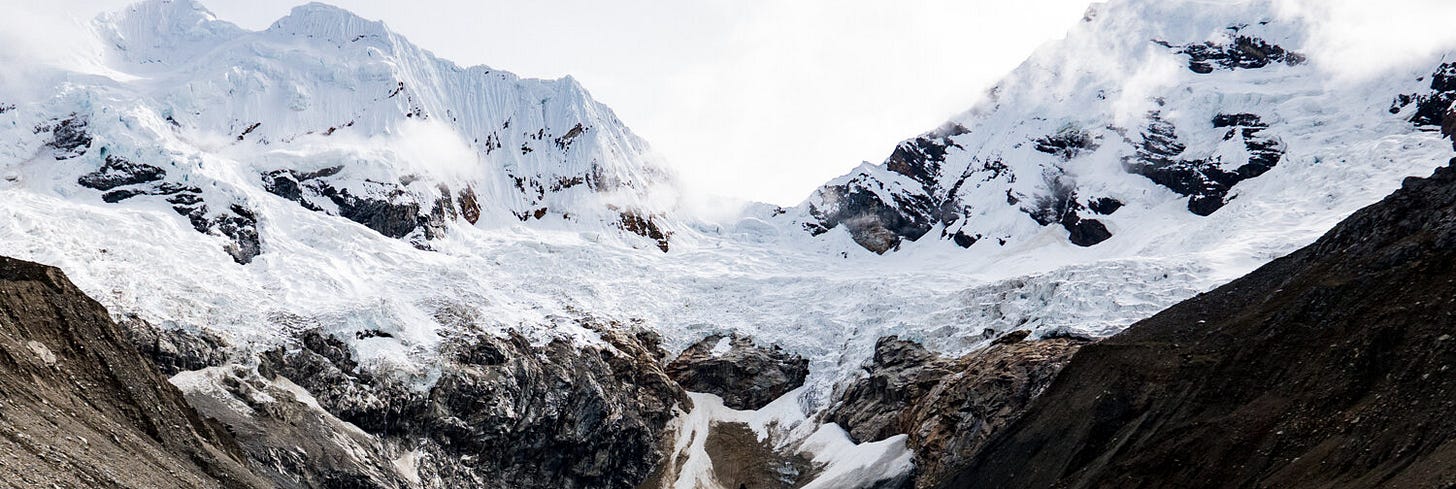"We can restore anything"
No matter how heavy and intractable and desperate things may feel, we are not lost. But we might need to shift where we are look for direction.
One of the most important teachers in my life has been an Andean healer and ceremonial leader named Arkan Lushwala. He has spent a lifetime as a guide and teacher inviting people to consider what the durable wisdoms of indigenous cultures might have to offer to our modern life — both as explanation and diagnosis, but also as cure.
Arkan’s latest book The Spirit of the Glacier Speaks is an accessible, joyous invitation to dig yet another layer deeper into just how the ancestral teachings of the Andean world (and all the ringing similarities it carries to other indigenous traditions) might have for all of us right now in this incredibly challenging moment for humanity. No matter how heavy and intractable and desperate things may feel, we are not lost. Community is not lost. Anything can be restored.
As we wind down 2023 and look ahead to another presidential election year, I am thinking a lot about leadership. And in that thinking, I often wonder whether the systems of developing, elevating, and selecting leaders produce the kind of leadership we most need. An at almost every turn, I feel a frustrating and disappointing “no.” We are too often building the wrong people for what we need — the campaigners aren't leaders. Performers don't want to govern. The lawyers don't love the law. The builders don’t see (much less love) the people they are building for. The healers can’t heal. And it is this line of concern that leads me to consider the nature of what real community leadership looks like, what embracing the difficulties we face not as obstacles to be avoided but as filters to reveal us and what we need. And it is from Arkan’s latest book I find hope and clarity for a different way to lead:
“These two principles, Manqo Qhapaq/Munay and Mama Oqllo/Kuyay, come together and create the balance that sustains the healthy use of power. One generates the action, and the other generates the necessary care so the action does not cause harm. One prospers in the effort of work and the other feeds life from the quietude of a tender embrace. … We established a way of understanding power as being the fruit of a complement of two parts. Every directive, decision, or initiative was always the product of the union of at least two sources, one from above and the other from below, one masculine and one feminine, one human and the other spiritual. This complementary form of leadership based on the principle of Yanantin (“the complement of two that are different”) was understood as a generative power.”
In the quiet moments you might find over the next couple weeks, I recommend from the deepest part of my heart that you find some time with this book. I promise it will change you.
Please consider becoming a paid subscriber to support this work. Subscribing to 7 Bridges is the best way to keep it free and open to all.





